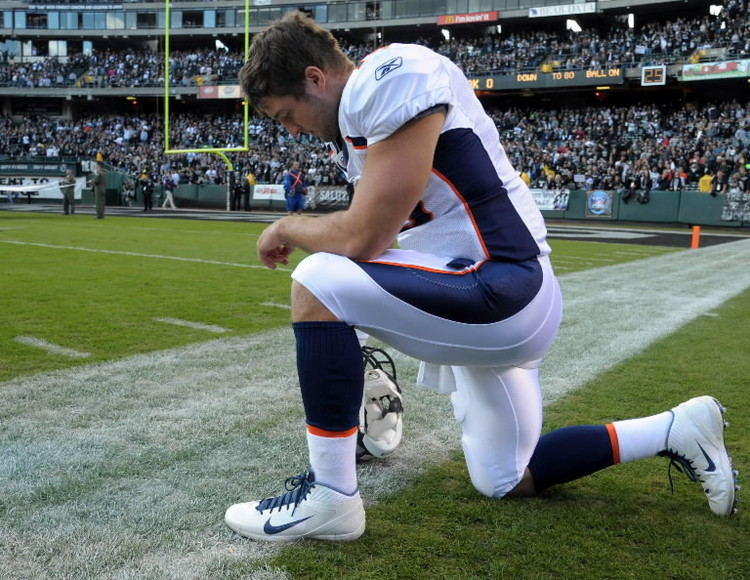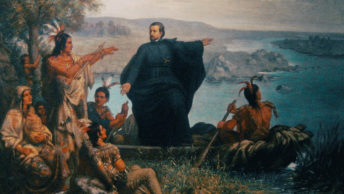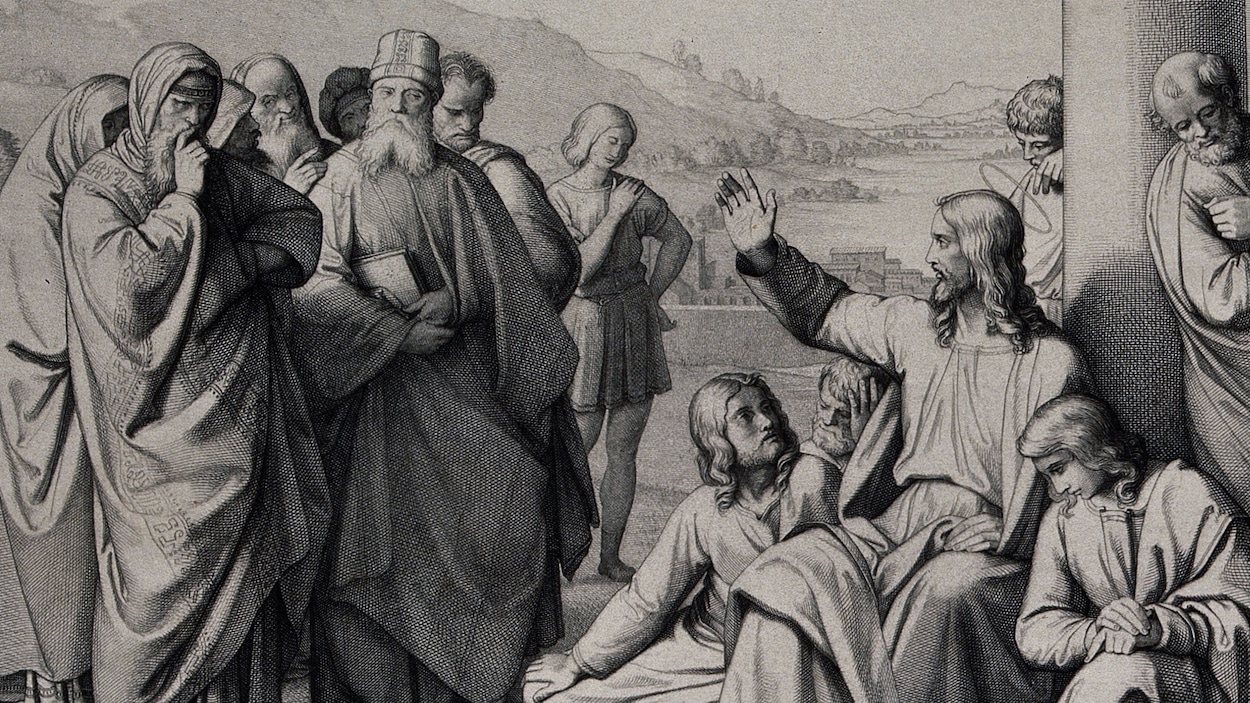From the moment of his birth, he was enveloped into the Christian faith. His father was a Baptist pastor, and his mother worked tirelessly with her husband to bring the message of Christʼs love to thousands of people. He never graduated from a regular high school, but once he attended college, people began to notice his exceptional skills. He always gave Christ credit for these gifts.
He was never ashamed of his faith and often quoted from the Scriptures or from the giants of Christianity, such as Thomas Aquinas or Paul Tillich, to drive home a particular point of view. Many said that he wore his religion on his sleeve or that he was trying to force his religious views on the public. But there were others who admired his willingness to speak about God and his faith. It seemed as if the number of admirers and detractors was evenly divided.
Early in his career he faced an opponent that most considered unbeatable. The “experts” said that he and his team didnʼt have a chance and that he would be lucky if he didnʼt get hurt during the contest. But again he turned to his faith as the ultimate source of his strength and shocked the country by pulling off the upset. This was followed by big wins on the road in Alabama, Mississippi, and Louisiana.
He became a national celebrity. Hundreds of articles were written about him. Television and radio stations begged for interviews. His name and his face appeared on the front cover of some of the nationʼs most prestigious magazines. To many, he was bigger than life, a true hero. Parents urged their children to follow his example.
But there were those who said he should tone down his references to Christ and the Scriptures. After all, he wasnʼt preaching in a church, not everyone was a Christian, and his new career was not the least bit religious by nature. “Just stick to what youʼre doing now and leave Jesus out of it,” he was told. “Why make waves for yourself when you donʼt have to?”
And yet with each interview he gave, he did not hesitate to refer to God or use the Scriptures. When asked how he felt about being ridiculed for his faith, he answered, “It was Christ who said, ʻLove your enemies, bless them that curse you, do good to them that hate you, and pray for them which despitefully use you, and persecute you.ʼ” Another reporter asked if he felt wounded by the negative comments he received. Quoting the Apostle Paul, he said, “I bear in my body the marks of the Lord Jesus.” When he was chastised for being too extreme, he used the example of Christ who was “an extremist for love, truth and goodness” and then reminded the questioner that Christ died for such extremism. Could he do less?
As time passed, he became a more polarizing figure. Those who hated him wrote vitriolic articles or made degrading comments on radio and television. When asked if he ever wanted to get even with the haters, he said that he prayed that he would “never succumb to the temptation of bitterness.” His willingness to pray openly in public irritated many people, and yet his response to their criticism was straightforward: “To be a Christian without prayer is no more possible than to be alive without breathing.”
And, finally, when he was asked about his success and what he wanted his legacy to be, he didnʼt talk about awards or honors. Instead he simply declared, “I just want to do Godʼs will.”
So, what do we have here? Another Tim Tebow article? Well, yes and no. This biography is actually that of Martin Luther King, Jr., and all the quotes above are from him. Today, would those who are so critical of Tim Tebow and his Christian message say the same about Dr. King? Would they say that King prayed too much or used too many Scripture references in his speeches? If King were alive today, would they cringe each time he thanked God or referred to Jesus? I doubt it. Is Tebow on a par with King in regard to accomplishments? Of course, not. But why was it okay for King to talk about his faith and yet Tebow shouldnʼt? “King was an ordained minister,” one might argue. Yes, but Tebow has done missionary work for most of his life. No, the difference is one of historical perspective. King is a revered American hero. Tebow is a football player. Still, he should be allowed to express his faith boldly without vicious criticism. Itʼs a right that I believe King would support.
(Authorʼs notes: I admit to “leading” the reader into assuming that I was referring to football games. In the third paragraph, the “opponent” was the city of Birmingham and its segregation laws with regard to busing. Dr. Kingʼs “team” was made up those who supported him. The bus boycott was successful. Dr. King went on to eventually influence changes in segregation laws in Alabama, Mississippi, and Louisiana, all states with SEC football teams, as is Florida, where Tebow was a star quarterback.
As for Dr. Kingʼs “new career,” although he began as a minister, once the Civil Rights movement exploded across the nation, he became its leading activist, and he no longer preached weekly at a church.)








